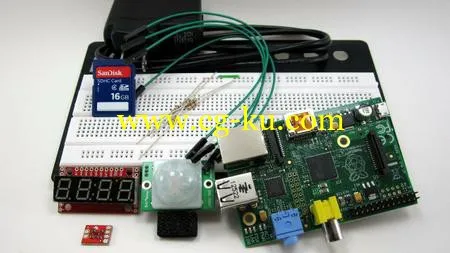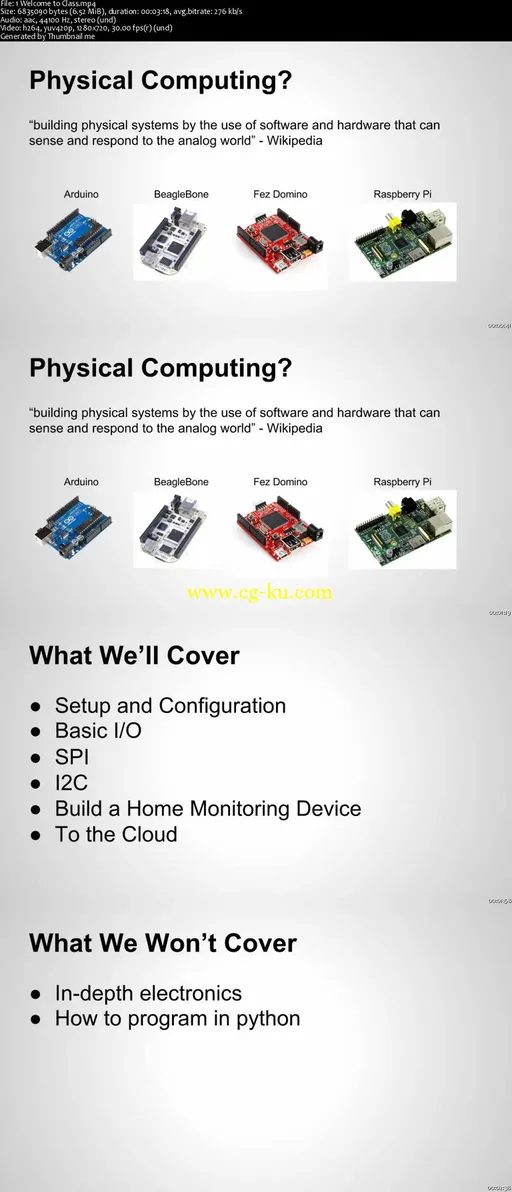
The Raspberry Pi Through Physical Computing
MP4 | Video: AVC 1280x720 | Audio: AAC 44KHz 2ch | Duration: 3 Hours 10M | 701 MB
Genre: eLearning | Language: English
This class is for beginners interested in unlocking the hardware potential of their Raspberry Pi so that it can interact with the physical world.
This is the first class on Skillshare to cover the Raspberry Pi and contains just over 3 hours of video instruction.
During the course we'll take this pil
The class will start with the very basics of setting up a Raspberry Pi straight out of the box. It will then cover 3 main capabilities provided by the Raspberry Pi for physical computing:
General Purpose Input/Output
I2C Protocol
SPI Protocol
Students will become very familiar with each of these via the class project which will be to create a very simple home monitoring device.
At the end of the class, students will have the basic knowledge and skills required to start creating their own Pi-based hardware projects.
The Class Will Cover the Following:
Setup: Unboxing and setting up the Raspberry Pi
PI GPIO Header: What it is and the functionality it provides
General I/O: How to configure and use a pin as an input and output
SPI Protocol: What it is and how to use it on the Pi
Sensors: How to hook them up and read them
I2C Protocol: What is is and how to use it on the Pi
To the Cloud: How to connect your creation to the web without writing a website
…and much more
As needed, the class will discuss basic electronics principles but is not meant to provide deep coverage of that topic. I'll walk you through everything you need to know to stay safe and have fun. The class will use the Python programming language. Programming experience is not required but will definitely help.
The following is a shopping list of items for the class project if you wish to follow along:
Raspberry Pi (power supply, SD card, keyboard, monitor, internet connection via ethernet cable or wifi adapter)
Pi Case (optional but recommended) - Make sure you can still access the header pins.
Breadboard (large)
Soldering Iron and Solder (very little soldering, maybe borrow)
Several Feet of Hookup Wire

发布日期: 2016-09-18